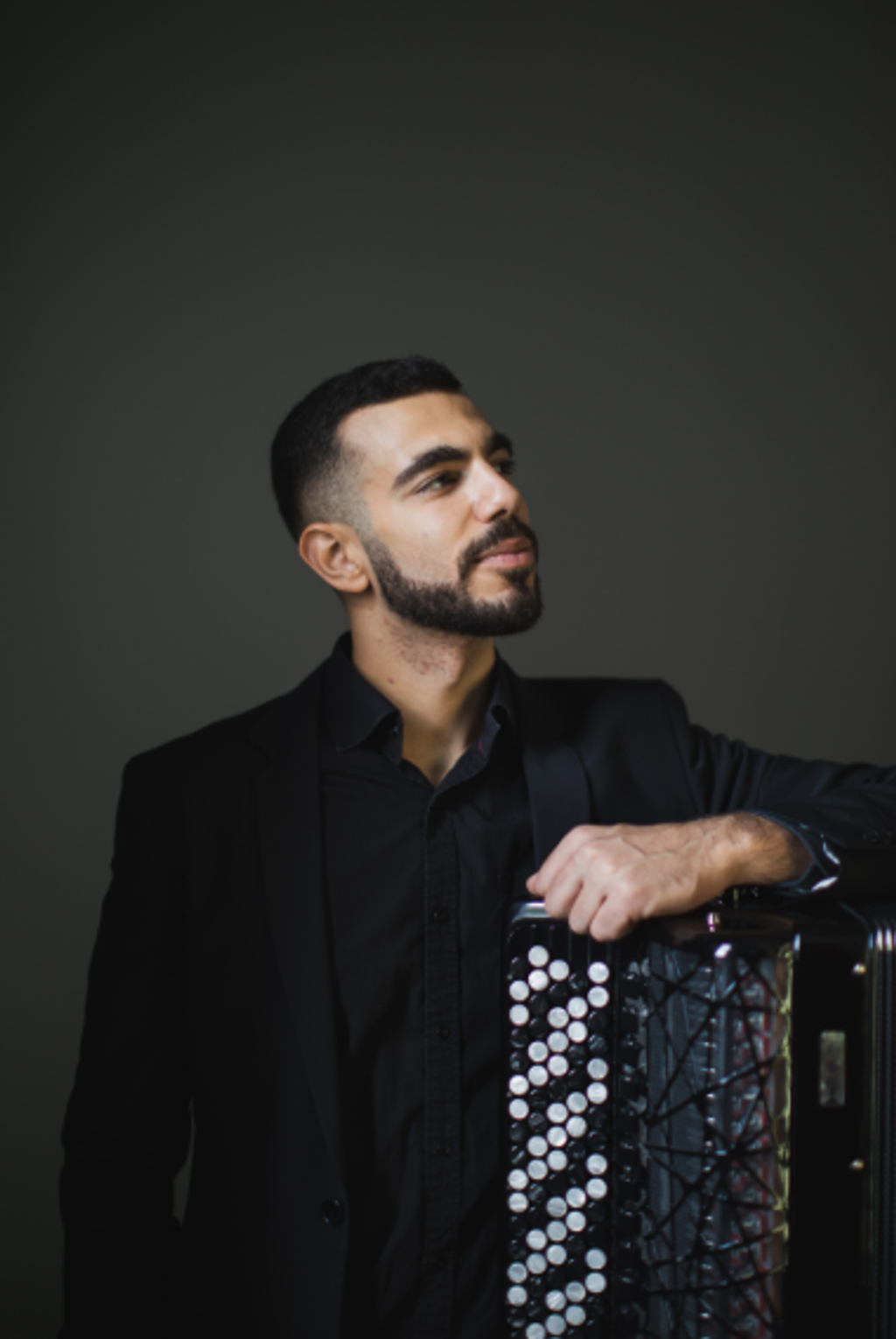Tell us about the work you've been doing with Junior Academy.
My work with Junior Academy has been especially meaningful because the accordion course was re-established thanks in large part to ongoing outreach efforts I have led over the past few years. For over two decades, the accordion had no presence at Junior Academy. Through external projects, school workshops and performances aimed at introducing young musicians to the instrument, I worked to raise awareness and generate interest among students, teachers and parents.
The turning point was when one of my students who I had taught privately for nearly three years successfully auditioned for Junior Academy, and the accordion course officially restarted. Since then, I’ve been developing a tailored programme that supports young accordionists at a high level, nurturing both their technical skills and developing their own musical identity within a conservatoire environment.
Your student has now been accepted to start undergraduate studies at the Academy in September. Can you tell us a little bit about what it's been like watching them develop?
It has been incredibly fulfilling to witness their growth. Over the past years, I’ve seen them mature musically and personally, learning to navigate demanding repertoire and developing a real sense of artistic purpose.
Our relationship with music naturally evolves throughout our lives, and this is especially true during the teenage years. As a teacher, it’s important for me to recognise those shifts in my students, to help them understand and embrace the emotional layers of their musical development and to support them in finding their own artistic point of view. I experience this constantly in my own life as a performer, and I see great value in creating a space where students can explore those changes openly. Watching this particular student develop from a young beginner into a committed, thoughtful artist has been one of the most rewarding aspects of my teaching so far.
You've also been working with the Academy’s Widening Participation Department. What has this involved and why do you think it has been important for the people you've been working with, as well as for your own professional development?
It’s been an incredibly rewarding part of my experience at the Academy. I’ve taken part in projects that bring Academy students into schools across London, where we work with young people from a wide range of cultural and financial backgrounds. The aim is to give these students the chance to work directly with current Academy students. Sharing their repertoire, receiving feedback and asking questions about musical training, Academy life and our experiences as developing professional musicians.
As an accordionist, I also see these sessions as a valuable opportunity to introduce my instrument to students who might not otherwise encounter it. But more importantly, I want them to feel that the world of classical music is accessible to them and that their voices, experiences and questions matter.
This work has also been invaluable for my own development. It’s taught me how to listen attentively, adapt my communication across different age groups and musical levels, and be present not just as a performer, but as a mentor and collaborator. These are lessons I carry with me in every aspect of my work as a musician.
How do you think that the financial support you have received as a student here has had an impact on your attitude towards music education? Has this been motivation to pass on your own musical knowledge to other young people?
During my master’s degree, I had to take on a part-time job to cover my living expenses and part of my tuition fees. But given the cost of living in London, my part-time job quickly became closer to full-time hours. I soon realised that I was stretching myself too thin. Between work, practice, lessons, rehearsals, and everything else the Academy offers, I simply couldn’t commit to my studies in the way I wanted to.
That’s why I am incredibly grateful for the financial support I received for my Advanced Diploma. It allowed me to fully dedicate myself to my development as a musician without the constant stress of financial pressure. I was able to say yes to opportunities and be present, focused and creative.
Thanks to financial support, I’ve been able to commit to more concerts this year than ever before. I’ve taken part in collaborative projects, launched my professional website and even recorded and released my first solo album. None of this would have been possible without the time and space to truly invest in my artistic growth.
Having the time to focus on my craft has made me even more aware of how essential access and support are in music education. It’s one of the reasons I care so deeply about working with young people. I know first-hand how challenging it can be to pursue this path without financial stability. Supporting the next generation of musicians, sharing what I’ve learned and helping them feel seen and empowered is not just something I enjoy, it’s something I feel responsible for.
And finally, what is your favourite piece of music and why?
One piece that has really stayed with me over the past couple of years is Mussorgsky’s Pictures at an Exhibition. I was so drawn to it that I even created an accordion arrangement so I could perform it at my final recital. The work is such a powerful example of storytelling through music. Each movement is so vivid and imaginative, painting scenes with incredible detail and emotional range. It’s a piece that challenges both the performer and the listener to travel through a gallery of sound, and I found that incredibly inspiring to interpret on the accordion, an instrument that’s so versatile itself.
